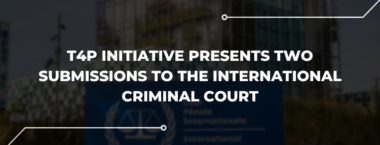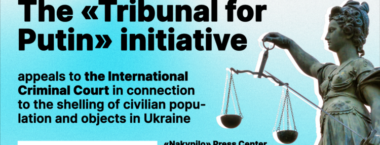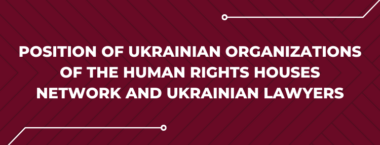
Torments, Torture Chambers, Executions: T4P Initiative Presents Two Submissions to the International Criminal Court
Information about extrajudicial executions of Ukrainians by the Russian military and Russian torture chambers in...
28 September 2023
The information war, actively accompanying the East Ukraine’ armed conflict and Crimea’ annexation, for the first time in many years caused the need for a global revision of the state’s information policy.
The reasons for this are two factors. At the first, this is an extremely active use by the Russian Federation all methods of information war: disinformation, propaganda, diversification of public opinion, manipulation, psychological and psychotropic pressure; spreading of the rumors. At the Second, neither the authorities nor the civil society were prepared to confront the hybrid armed conflict in the information sphere.
The result of this situation had been the uncoordinated activities of various actors in the field of information policy. The desire of the authorities to victory in the information war has led to attempts of the not well-grounded restriction of the freedom of speech. In particular – in the form of extrajudicial establishment of disproportionate sanctions against foreign media, as well as by establishing the criminal liability for the dissemination or promotion of socially important information on the ATO conduct.
The lack of state policy under information war has led to the threatening trends – the creation by media of the image of the whole Russian population as a «fierce enemy of Ukraine», non-compliance with tolerance during the coverage of the ATO and life of people living in temporarily occupied regions of Ukraine. The hybrid armed conflict has clearly outlined the need for common standards of objectivity and balance, which should be monitored both by the state and the non-governmental sector.
In this publication there was conducted the analysis of the situation regarding the observance of freedom of speech in the conditions of information war and armed conflict in Ukraine. There were outlined problematic issues concerning the requirements of information security, possible restrictions in the sphere of freedom of speech, as well as the issue of counteracting the hate speech in the mass media. Also there are presented the results of the public expertise of the Ministry of Information Policy of Ukraine carried out by experts of the Ukrainian Helsinki Human Rights Union and “Detector Media” NGO.
Full publication in English may be found here
The publication was prepared and published as part of the US Agency for International Development (USAID) “Human Rights in Action” project, implemented by the Ukrainian Helsinki Human Rights Union.
The views and interpretations presented in this publication do not necessarily reflect the views of USAID or the Government of the United States of America. Content of the publication is solely the responsibility of the authors and the Ukrainian Helsinki Human Rights Union.
If you find an error on our site, please select the incorrect text and press ctrl-enter.

Information about extrajudicial executions of Ukrainians by the Russian military and Russian torture chambers in...
28 September 2023

Since the onset of the full-scale invasion, the «Tribunal for Putin» initiative has recorded about...
18 August 2023

Position of Ukrainian organizations of the Human Rights Houses Network and Ukrainian lawyers on the...
17 July 2023

On June 6, 2023, the Southern Area Military Court of Rostov-na-Donu sentenced Mr.Bohdan Ziza, a...
08 June 2023